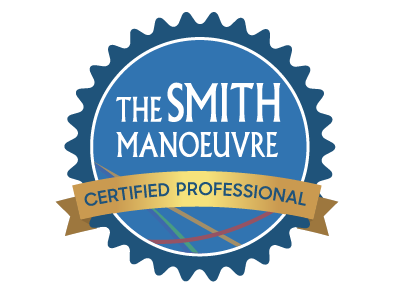What is a “No-Frills” Mortgage?
A no-frills service or product is where non-essential features have been removed from the product or service to keep the price as low as possible.
And while keeping costs low at the expense of non-essential features might be okay when choosing something like which grocery store to shop at, which economy car to purchase, or which budget hotel to spend the night, it’s not a good idea when considering which lender to secure mortgage financing. Here’s why.
When securing mortgage financing, your goal should be to pay the least amount of money over the term. Your plan should include having provisions for unexpected life changes.
Unlike the inconvenience of shopping at a store that doesn’t provide free bags, or driving a car without power windows, or staying at a hotel without any amenities, the so-called “frills” that are stripped away to provide you with the lowest rate mortgage are the very things that could significantly impact your overall cost of borrowing.
Depending on the lender, a “no-frills” mortgage rate might be up to 0.20% lower than a fully-featured mortgage. And while this could potentially save you a few hundreds of dollars over a 5-year term, please understand that it could also potentially cost you thousands (if not tens of thousands) of dollars should you need to break your mortgage early.
So if you’re considering a “no-frills” mortgage, here are a few of the drawbacks to think through:
- You'll pay a significantly higher penalty if you need to break your mortgage.
- You'll have limited pre-payment privileges.
- Potential limitations if you want to port your mortgage to a different property.
- You might be limited in your ability to refinance your mortgage (without incurring a considerable penalty).
Simply put, a “no-frills” mortgage is an entirely restrictive mortgage that leaves you without any flexibility. There are many reasons you might need to keep your options open. You might need to break your term because of a job loss or marital breakdown, or maybe you decide to take a new job across the country, or you need to buy a property to accommodate your growing family. Life is unpredictable; flexibility matters.
So why do banks offer a no-frills mortgage anyway? Well, when you deal with a single bank or financial institution, it’s the banker’s job to make as much money from you as possible, even if that means locking you into a very restrictive mortgage product by offering a rock bottom rate. Banks know that 2 out of 3 people break their mortgage within three years (33 months).
However, when you seek the expert advice of an independent mortgage professional, you can expect to see mortgage options from several institutions showcasing mortgage products best suited for your needs. We have your best interest in mind and will help you through the entire process. A mortgage is so much more than just the lowest rate.
If you have any questions about this, or if you’d like to discuss anything else mortgage-related, please get in touch. Working with you would be a pleasure!






